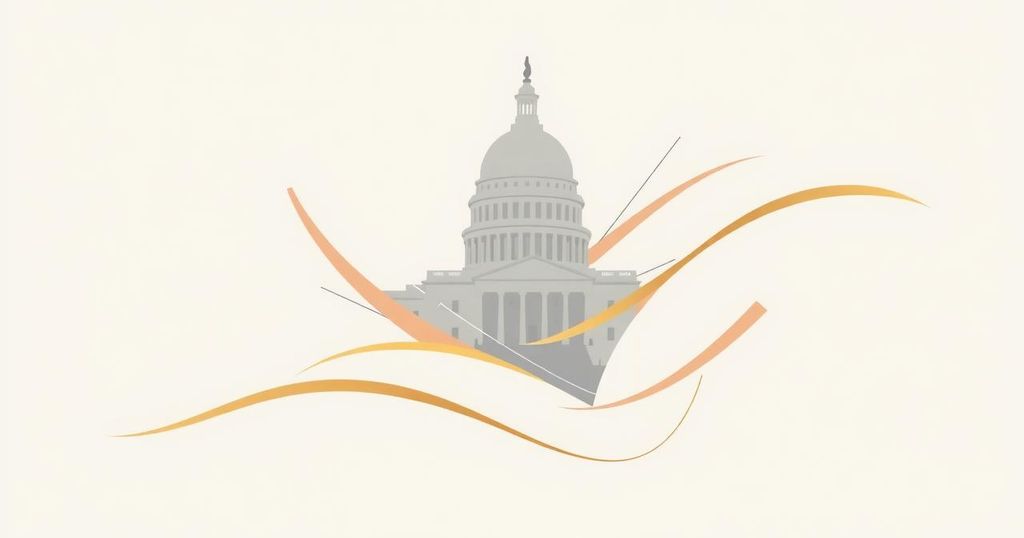Prime Minister Narendra Modi announced a deregulation commission to reduce state intervention in governance while emphasizing ease of business and proactive reforms since the BJP’s rise to power. He criticized past administrations for their slow pace of reforms and highlighted achievements such as the Svamitva Yojana in property rights. Modi expressed confidence in India’s potential to emerge as the third-largest economy and stressed the importance of positive discourse in democracy.
During a recent address at the ET Now Global Business Summit 2025, Prime Minister Narendra Modi announced the establishment of a deregulation commission aimed at minimizing the state’s involvement in governance. He criticized the previous Congress-led UPA government, claiming they lagged in implementing reform measures, and noted that his government’s efforts stem from conviction rather than compulsion. Modi emphasized the transformation from a ‘fear of business’ to an ‘ease of doing business’ under the National Democratic Alliance (NDA) administration.
The Prime Minister highlighted significant reforms such as the Goods and Services Tax (GST) and the Jan Vishwas 2.0 initiative, which seeks to simplify compliance for businesses. Modi expressed his belief that diminished governmental interference fosters better societal growth, emphasizing that with the formation of the deregulation commission, the government would operate with new vigor during his current term.
Modi expressed gratitude towards the people of states like Odisha, Maharashtra, Haryana, and New Delhi for their support of the Bharatiya Janata Party (BJP) in recent elections. Assertively, he noted that India is gaining confidence on global platforms, a sentiment showcased during the Artificial Intelligence (AI) Summit in Paris, positioning the country as a leader in future global discussions.
The Prime Minister also detailed the impact of reforms on property rights through initiatives such as the Svamitva Yojana, which employs drone technology for land surveys in rural India, benefiting over 22.5 million citizens. He contended that these reforms have significantly increased rural property values and granted residents better access to credit.
Critically, Modi remarked on the inefficiencies of previous administrations, suggesting that their reforms, if they occurred at all, were merely reactive. He compared the developmental pace of the Congress party to their alleged history of corruption, accentuating the proactive reform culture established since the BJP’s rise to power in 2014. Modi underscored the importance of positive discourse in a healthy democracy, countering the prevalent narrative that negativity is more democratic.
Ultimately, the Prime Minister asserted that India’s strategic reforms have driven it to become the fifth-largest global economy and he is confident that it will soon be the third-largest. He emphasized a strong commitment to reformative action rooted in conviction, moving away from the historical inertia of governmental practices from the colonial past, as evidenced by the Bharatiya Nyaya Sanhita (BNS) which promises significant improvements in the legal system.
In summary, Prime Minister Narendra Modi has introduced a proposal for a deregulation commission aimed at reducing state intervention in governance, reflecting his administration’s commitment to proactive reforms. By drawing comparisons with prior governments, he has highlighted the achievements of the NDA in transforming India’s economic landscape and fostering a conducive environment for business. His confidence in India’s economic future and the importance of positive public discourse form the crux of his message at the business summit.
Original Source: www.hindustantimes.com






